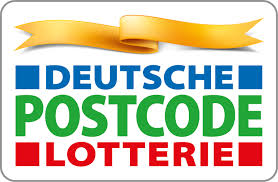The Positive Impact of the Postcode Lottery

Introduction
The Postcode Lottery, a unique charitable initiative in the UK, has been making significant strides in supporting local communities and various charitable organisations. With its simple yet innovative model, it allows players to contribute to worthy causes while having the chance to win cash prizes. As communities continue to face challenges exacerbated by recent global events, the role of the Postcode Lottery is more relevant than ever.
How the Postcode Lottery Works
Established in 2005, the Postcode Lottery operates by selling tickets associated with specific postcodes. A portion of the ticket sales goes directly to local charities, with participants in winning postcodes sharing in cash prizes that vary in amount. This structure not only incentivises participation but also ensures that local initiatives receive vital funding.
Charitable Contributions and Community Impact
Since its inception, the Postcode Lottery has generated over £700 million for charity, benefiting over 7,500 local and national causes. Recent funding initiatives have particularly focused on organisations aiding mental health, the environment, and educational programmes. For example, in 2022 alone, the lottery generated £77 million for charitable causes, with significant contributions towards mental health support following the COVID-19 pandemic.
Local charities like the Age UK and environment-focused groups have reported increased engagement and expansion of services as a direct result of the funds raised through the Postcode Lottery. The transparency of how funds are allocated allows players to see the real impact their participation has in their communities, fostering a sense of collective responsibility and support.
Future Prospects
As the need for community support grows, the future of the Postcode Lottery looks promising. Plans for expansion include introducing new games and enhancing digital participation, making it easier for players to engage with the lottery online. This commitment to innovation is aimed at reaching a broader audience and increasing contributions to charities in need.
Conclusion
The Postcode Lottery stands as a prime example of how fun and philanthropy can intersect to create meaningful change. By generating substantial funds for local causes, it not only enriches communities but also enriches the lives of participants who contribute to a greater good. As we look ahead, the role of this unique lottery will likely expand, driving continued support for the charities that form the backbone of our local societies.









